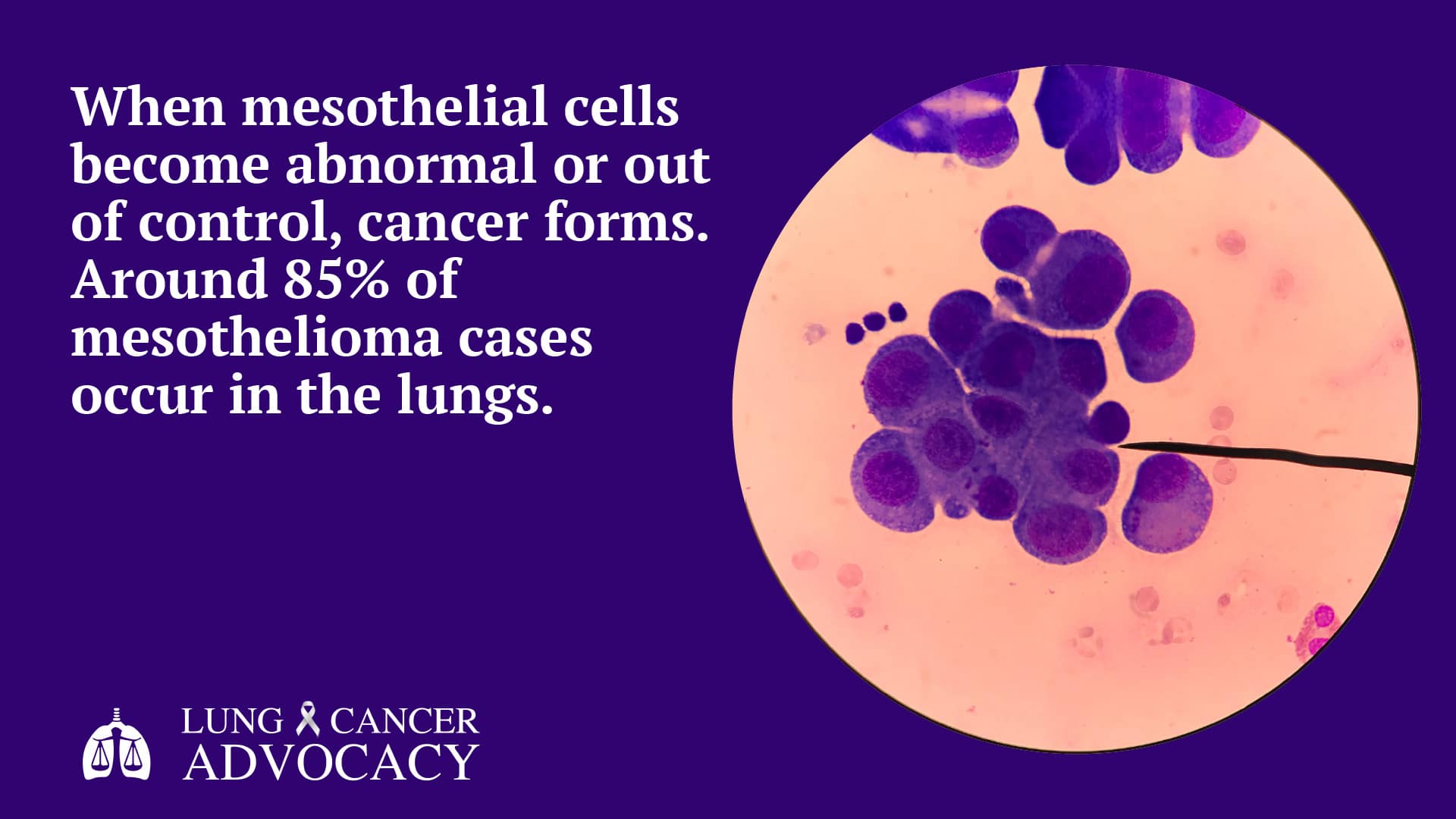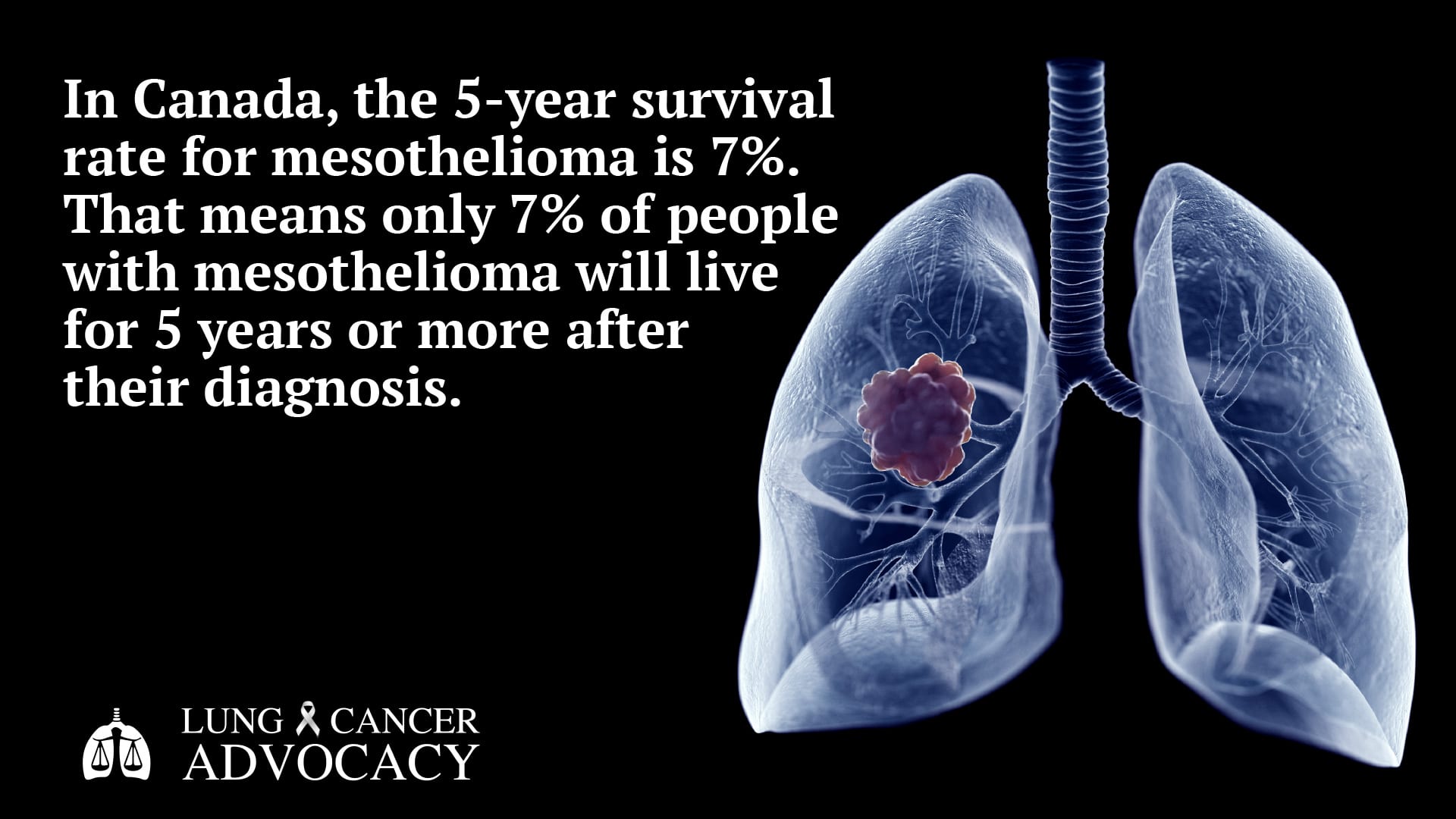Mesothelioma
Mesothelioma is a rare but serious type of cancer that almost always occurs as a result of exposure to asbestos. More than 80% of mesothelioma cases in men and women are related to asbestos. Unfortunately, in Canada, many industries still use asbestos, especially the construction and mining industries.
Research shows that the number of mesothelioma diagnoses in Canada remain high. In 1984, 153 diagnoses were made. In 2003, 344 people were diagnosed. That accounts for an annual incidence rate increase from 1.4 to 2.1 cases per 100,000 people. Between 2000 and 2012, cases increased by 60%.
Mesothelioma occurs in every province in Canada. Canada was once a global leader in mining and production of asbestos. While there are now regulations in place to protect people from asbestos, a significant amount of damage has already been done. Most cases of mesothelioma are not diagnosed until 30 years or more after exposure to asbestos, which is why incidence rates continue to climb.
What is Asbestos?
Asbestos is a mineral that occurs naturally in rocks and soil. It became popular in the early 20th century as a building material and insulator. Asbestos fibers are very strong, are lightweight and are very fire-resistant. This makes it an excellent product for use in manufacturing insulation, building materials, automotive parts and more.

Asbestos is comprised of thin fibers that are tightly wound. Some are long and curvy (serpentine) and others are straight like needles (amphibole). A subtype of amphibole, known as crocidolite, is a type of asbestos most commonly associated with mesothelioma. The fibers are easily inhaled and easily attach to tissue inside the body.
By the later 20th century, it became apparent that asbestos was making people sick. As a result, many governments began banning mining, production and use of products containing asbestos. In 1989, the United States banned most use. It was not until 2011 that the last Canadian mine shut down however.
What is Mesothelioma?
Mesothelioma is a type of cancer that develops in the mesothelium. The mesothelium is the thin membrane or lining that protects various organs in the body, such as the lungs. The mesothelium is comprised of cells that make up two layers – one that surrounds the organ and one that forms a protective sac.
While mesothelioma can occur in the mesothelium of various organs, it is most common in the lungs. This is called pleural mesothelioma. While similar, it is not the same thing as lung cancer.

When mesothelial cells become abnormal or out of control, cancer forms. Around 85% of cases occur in the lungs.
Approximately 70-80% of those cases are the result of exposure to asbestos. Other potential cases include exposure to chemicals, exposure to radiation and genetics. There are also cases that are considered “spontaneous” or “idiopathic” meaning doctors don’t know the cause.
Many cases are not diagnosed until 30-50 years after exposure. By the time symptoms are apparent, many cases have progressed to the point of being life-threatening. While mesothelioma may originate in the lungs, it can spread (metastasize) to other parts of the body.
Symptoms of Mesothelioma
Many people with early stage mesothelioma do not have symptoms. Symptoms often become apparently later, once the disease has progressed. Symptoms that patients may experience include:
- Shortness of breath
- Difficulty breathing (dyspnea)
- Chest pain
- Chronic cough
- Difficulty swallowing (dysphagia)
- Unusual lumps under the skin on the chest
- Collection of fluid around the lungs
- Unexplained weight loss
There are also some general symptoms that people with various types of mesothelioma report. These include:
- Fever
- Weakness
- Unexplained weight loss
- Night sweats
- A general feeling of illness (malaise)
Many of these symptoms can occur with conditions other than mesothelioma. However, if you have a history of exposure to asbestos and then develop these symptoms, it is a good idea to talk to your doctor about the possibility of mesothelioma. Not only finding out if you have it, but also what the risk is that you could develop it in the future.
How is Mesothelioma Diagnosed?
Most people begin their mesothelioma diagnosis journey by reporting symptoms like those listed above. Next, your doctor will conduct a clinical evaluation including a physical examination and reviewing your medical history. Your doctor will also likely order a series of tests, such as:
- X-rays
- Computed tomography (CT)
- Positron emission tomography (PET)
- Magnetic resonance imaging (MRI)
- Blood tests
- Lung function tests
If your doctor suspects that you have mesothelioma, he or she may order a biopsy of the affected area. There are various ways to conduct a biopsy, some through minimally invasive surgery and others by inserting a long needle through the skin to collect a tissue sample. Once tissue has been collected, it is evaluated by a laboratory. Under a microscope, technicians will be able to see if there are cancerous cells in the tissue.
If mesothelioma is found during tests, your doctor will conduct further assessments to assign a stage of disease. Staging helps identify how severe the cancer is and whether or not it has spread to other parts of the body. This can also be useful in guiding treatment plans. Further assessment may include mediastinoscopy, a procedure where the lymph nodes near the affected lung are biopsied. Other imaging tests may be done to see if there may be mesothelioma in other parts of the body.
There is currently no standardized staging system for mesothelioma. At least six systems have been proposed, but there is no consensus in the medical community about how to stage the disease properly.
Treating Mesothelioma
Mesothelioma is a progressive disease. Most cases cannot be cured. Instead, treatment plans focus on managing symptoms and slowing down disease progression. The types of treatment used will depend on factors like your overall health, the location of the cancer and the stage or severity.
Mesothelioma is a difficult type of cancer to treat. The best treatment plans include a team of doctors who have experience handling these cases. Treatment options may include one, or a combination of, the following:
Chemotherapy
Chemotherapy, or chemo, is one of the primary treatment methods for mesothelioma. Chemo can be effective at managing symptoms and shrinking cancerous cells. It can also help slow down disease progression and prevent it from spreading further.
Radiation
Radiation is most commonly used to treat mesothelioma in conjunction with chemotherapy or surgery. This therapy targets high-energy x-rays at cancer cells and destroys them. Radiation is often not effective at treating the disease on its own. Unlike other types of lung cancer, mesothelioma does not develop as a single tumor. This makes it challenging for radiation to target the cancerous tissue.
Targeted Therapy
Targeted therapy is a treatment option for some people with mesothelioma. During targeted therapy, the patient recieves special drugs that target cancerous cells, seek them out and destroy them. For patients with mesothelioma, targeted therapy is often used in conjunction with chemotherapy.
Surgery
Some earlier stage mesothelioma can be resected, meaning the cancerous tissue can be surgically removed. Surgical resection depends on the subtype of cancer, such as a sarcomatoid tumor, as well as whether the cancer has spread to surrounding tissue. Doctors will also assess whether the patient is generally healthy enough to have surgery.
If resection is an option, surgeons can remove mesothelioma by performing a pleurectomy/decortications (P/D), or by extrapleural pneumonectomy (EPP). These options are most viable for early-stage cancers when there is a greater chance of the cancer being completely removed. EPP is a particularly complicated surgical procedure, and not all patients are candidates.
Prognosis
Much like treating mesothelioma depends on a variety of factors, so does the prognosis. An overall prognosis for mesothelioma recovery and life after diagnosis may depend on:
- The stage of cancer
- How extensive the cancer is and whether it has spread
- Whether the cancer can be resected
- Whether there is fluid in the abdomen or chest
- The type of mesothelioma cells
- Whether this is a first diagnosis or a recurring cancer
- Your overall health
These factors will all influence your treatment and overall prognosis. Your doctor may also use these factors to estimate how successful treatment may be.
Researchers compile this information to provide a survivability rate for people with various diagnoses. For mesothelioma, there is a database that collects information and provides an estimated 5-year survivability rate. This survivability rate provides an estimate of the likelihood of survival of someone with mesothelioma relative to individuals who do not.
The 5-year relative survival rates for mesothelioma patients in Canada is alarming.

Of course, no one can tell you how long you will live. Survivability rates are only estimates based on patients with similar histories and diseases.
Have You Been Diagnosed with Mesothelioma?
If you or someone you love has been diagnosed with mesothelioma, you may be entitled to compensation. Many people with mesothelioma were exposed to asbestos at work, and many were not aware that they were at risk. If this resonates with you, contact us today to learn more about lung injuries and your legal rights.
At Lung Cancer Advocacy, we can help answer questions and explore your rights and options. For a FREE case evaluation, call us at (866) 541-5812, or sign up online for more information.
Sources:
- https://www.ncbi.nlm.nih.gov/pmc/articles/PMC2263106/
- https://cmfonline.org/
- https://www.ncbi.nlm.nih.gov/pmc/articles/PMC2365488/
- https://rarediseases.org/rare-diseases/mesothelioma/
- https://www.mayoclinic.org/diseases-conditions/mesothelioma/diagnosis-treatment/drc-20375028
- https://www.webmd.com/lung/mesothelioma-causes-and-symptoms#1

